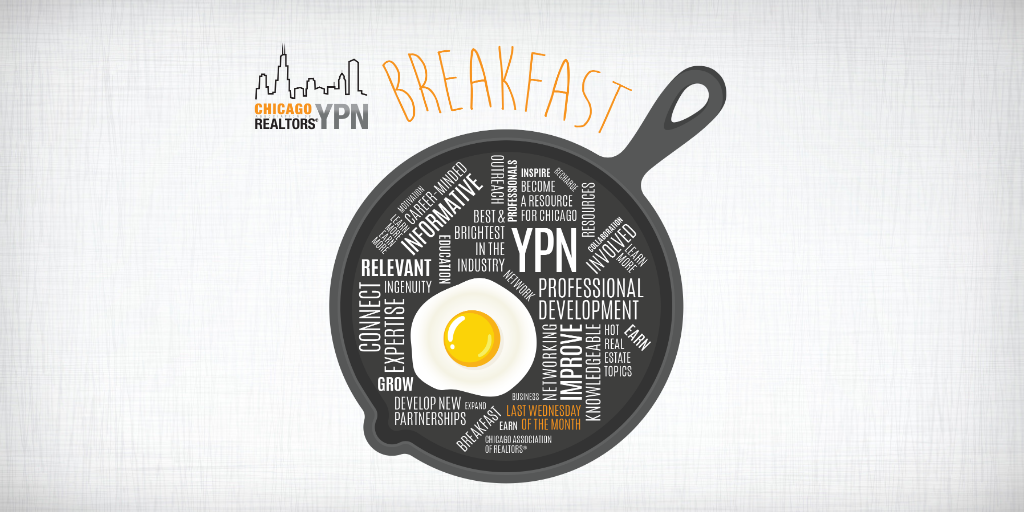On Wednesday, August 25, we hosted our monthly YPN breakfast “Financial Literacy” at our home base, Manny’s Deli. We were so excited to get back together in person, connect with our peers and devour advice from local industry experts. You can stay up-to-date on upcoming YPN events by following the YPN Facebook page!
READ KEY TAKEAWAYS:
DeVon kicked off the breakfast by setting an intention to:
- Learn how to manage our money smarter, and;
- Do so with long-term sustainable goals in mind.
We want to be able to set up our finances so we can take care of ourselves, build wealth and succeed in our careers!
Know Your Number
What number? Know how much it costs you to live your life.
Not to be confused with lifestyle, this number is how much you need to have in your bank account, at minimum, to pay all of your bills related to shelter, transportation and fuel.
As Rodney said, once you know your number, you know your problem and you can fix it. Do you need at least $2,500 in your account each month? You know how much you need to make, and if you aren’t making that, you know that you need to change your spending, budgeting or earning to get there.
Mike tracks these finances in a spreadsheet. From utility bills to tuition and car payments, he knows his basic expenses. However, this doesn’t include new watches and expensive clothing. “New watches don’t get you new business,” he said.
Also, he never lets the amount in his account drop below his number!
Rodney recommends separating your finances into three accounts: one where income comes in, one where expenses (insert: your bills) are withdrawn and one to deposit funds for leisure. Then, you know the bare minimum bills are being funded and paid, and you know what extra you actually have leftover.
So, you know your number. Now what? Let’s talk budgeting.
3 Things You Should Start Doing Right Now When It Comes to Budgeting
Mike and Rodney dropped A TON of advice about smart budgeting moves, but here are three actionable steps we can take right away.
ACTION ITEM #1
Create a checking account that exclusively holds the funds for your essential bills like utilities, rent or mortgage. Then, automate those transactions.
Why? Your peace of mind. You can rest easier knowing you are consistently setting aside exactly what you need for your basic expenses, and you know everything is being paid on time.
ACTION ITEM #2
Hone your budget with crisis planning and retirement in mind by automating a portion of your budget to go into savings and an investment.
Today is the day you will, first, look at “your number” (see above) and determine how much of the leftovers will automatically deposit into an emergency fund.
Then, look at the leftover dollar amount and determine how much of that you will invest. As Rodney said, people invest in three things: business, real estate and stocks. Today is the day you will invest in something.
Why? When you budget, operate with a four-step mindset. You make money, you save money, you invest your money and then you live on the interest of those accounts. Hello, retirement plan.
ACTION ITEM #3
Sit down and assess your last month, your last quarter and your last year of expenses.
When Mike last did this, he realized he was paying nearly $3,000 annually on parking meters outside his office! So, he found free parking in the nearby Starbucks. The next time he did the same analysis, he discovered (ironically) he was spending up to $3,000 on his Starbucks orders. What was the point of all this?
These expenses could be invested more wisely, like towards training to increase his business expertise or towards a charity or a cause he cares about.
Where is your money actually going? Don’t sit and wonder anymore.
Beware! Credit Cards Require Discipline
Mike doesn’t believe in credit cards. Instead, he created a debit account for his business and established a failsafe of reserves (he recommends aiming for at least six months!) for crisis management. Why stick to debit?
“You will automatically be more conscious of what is coming out of that account,” he said.
Rodney chimed in with advice for those who still prefer to use credit cards but want to manage them wisely. “Don’t go into debt for anything that isn’t asset producing.”
He recommends using high rewards credit cards which offer extra benefits for those who have established, consistent, responsible payment. However, those are often accompanied by the risk of high interest rates if you miss your payments. “Credit cards are for the disciplined,” Rodney added.
If managing your own finances isn’t your strength, then perhaps wait until you create more discipline and routine before taking on credit cards.
Advice To New Brokers
What’s one thing our guest experts would recommend to new brokers?
“Don’t be stupid!” Mike said. Jokes aside, he cautions new real estate professionals to not fall into the rookie athlete trap. Like professional athletes, the nature of real estate often means that you receive sudden windfalls. If you don’t know how to spend it responsibly, you will be caught in the same financially unstable loop or may worsen your situation.
Rodney reinforced his four-step mentality to financial literacy. “You make money, you save money, you invest your money and then you live on the interest of those accounts,” he said. Your budgets and savings will not build wealth fast enough in the long-term without investing!
So, build more financially literate practices into your professional and personal lives by taking these intentional steps. Then, you can begin to scale your goals to grow your wealth and peace of mind!







